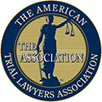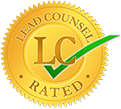
Takeda Pharmaceuticals is currently defending the first of over 3,000 lawsuits filed against it alleging that its type 2 diabetes drug Actos caused or may have increased the risk of developing bladder cancer. Even though studies have conclusively shown this connection, the U.S. Food & Drug Administration (FDA) recently approved a generic version of Actos – leaving many patients, doctors and others in the medical community to ask the simple question – why?
Studies Linking Actos To Bladder Cancer
There have been numerous studies that report that pioglitazone, the generic name for Actos, can significantly increase the risk of developing bladder cancer. In July of 2012, Canadian’s University of Alberta School of Public Health reported that Actos users have a 22% increased chance of bladder cancer. Another study from the University of Pennsylvania reported similar findings and further noted that the risk increased the longer Actos was used.
Unfortunately, many Actos users were never told about the increased risks of Actos injuries they faced and trusted Takeda and the FDA to warn them about these known dangers. Despite studies and lawsuits, the FDA has approved several pharmaceutical companies, such as Mylan Pharmaceuticals and Teva Pharmaceuticals, to manufacture generic versions of Actos.
Although the FDA issued a public safety announcement in 2011 that warned that using Actos for more than one year could increase the risk of bladder cancer, many consumer groups say that the warning was simply not enough and that its approval of generic Actos is troublesome. In fact, Consumer Reports has warned patients not to use Actos or its generic counterparts.
Actos Bladder Cancer Trial
The first Actos injury lawsuit is currently being tried in California – the outcome of which may affect whether generic versions will actually be manufactured and whether Takeda Pharmaceuticals will begin to settle Actos bladder cancer lawsuits.
If you or a family member has developed bladder cancer after taking Actos, contact The Driscoll Firm, LLC, to evaluate your situation and determine whether you might be entitled to compensation so that you can make an informed choice about whether taking legal action makes sense for you. Consultations are free and without further obligation.







